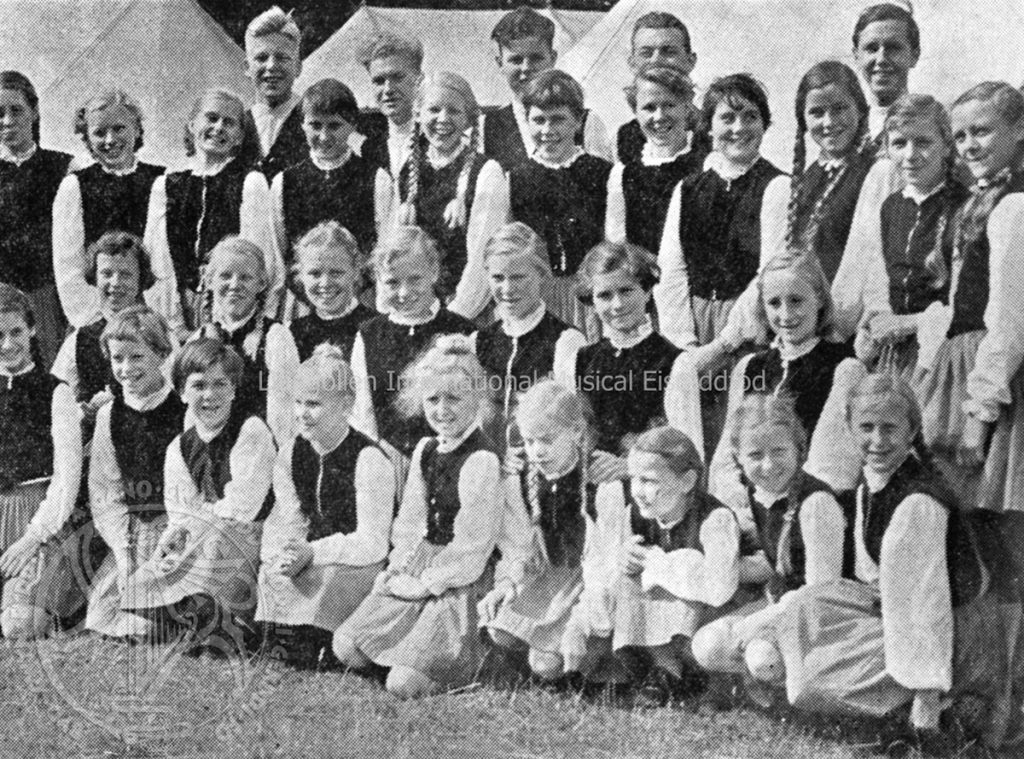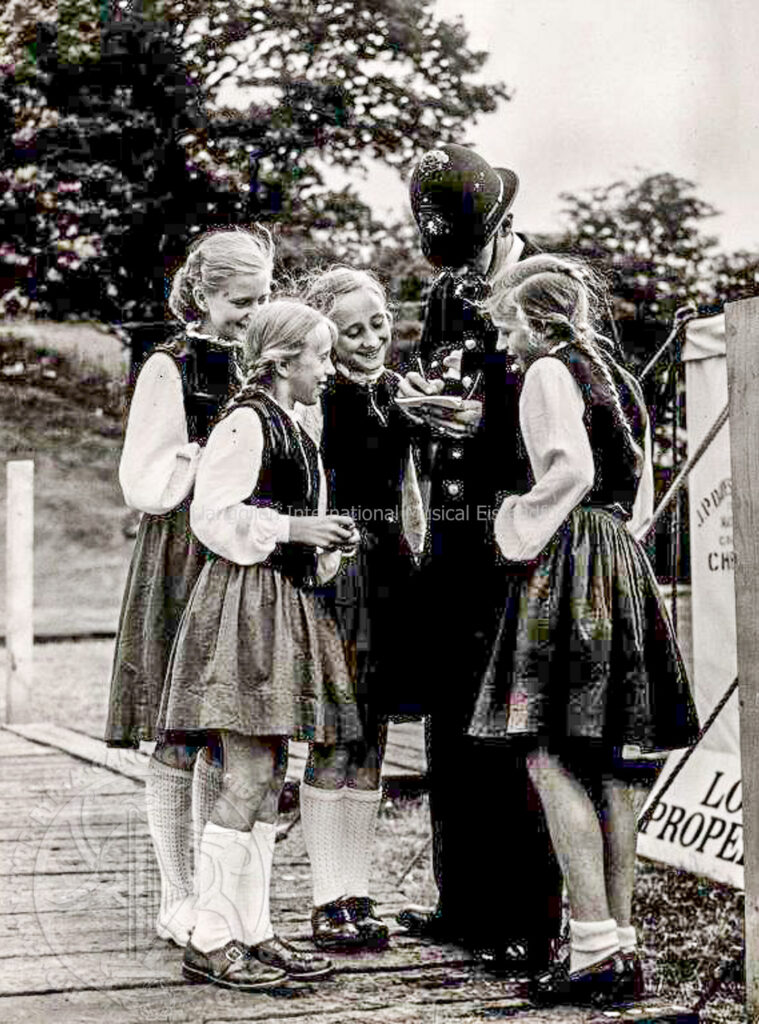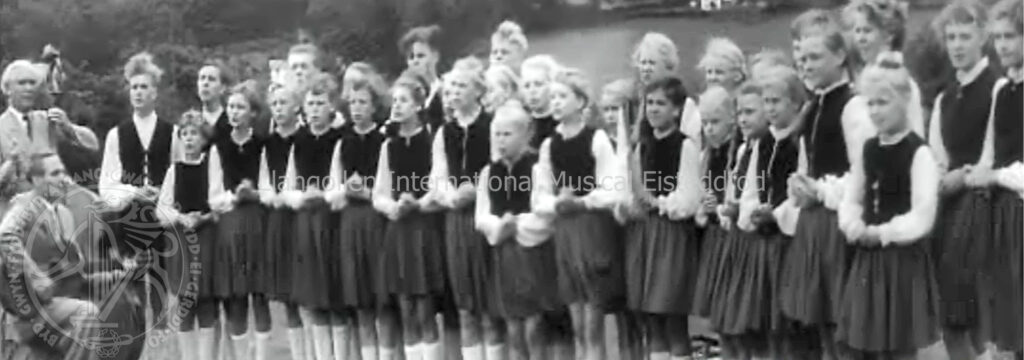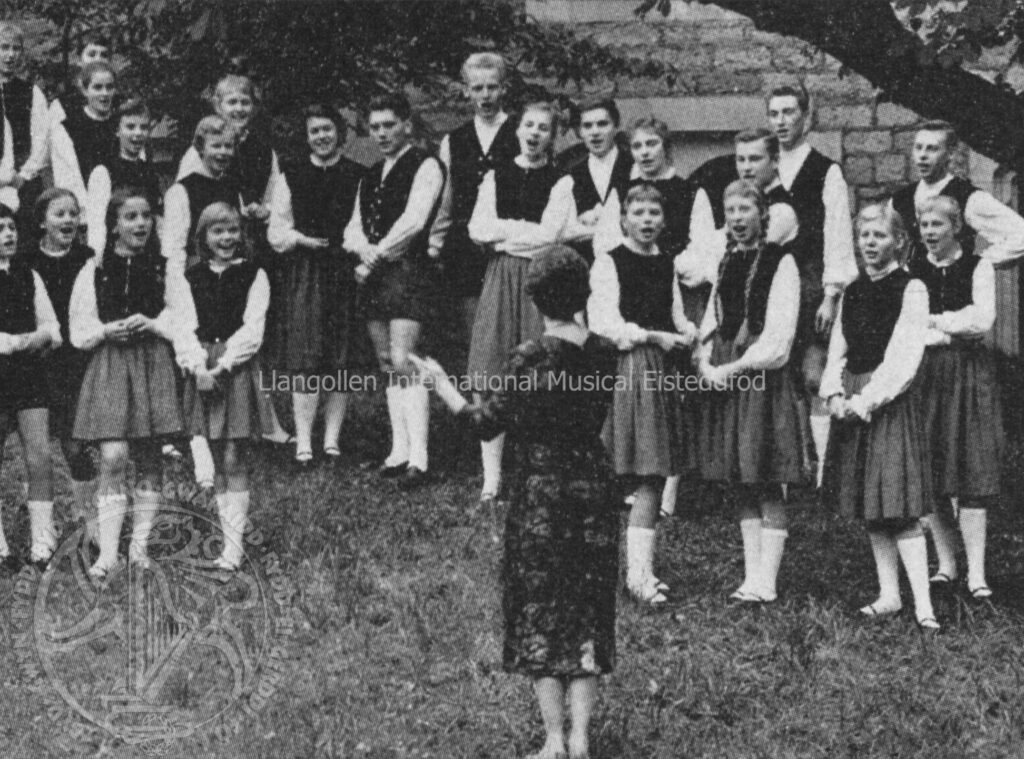Llangollen has welcomed well over 100 groups from Germany since the 1940s: the vast majority have been choirs, and they’ve won many prizes. They’ve come from all over that country, starting with West Germany in 1949, East Germany in 1959, and after reunification almost every year since 1991. The music community in Germany is among the most consistent supporters of the Llangollen International Musical Eisteddfod.
However, two of the earliest German choirs won special places in the hearts of the Llangollen community, and also helped to define the nascent Eisteddfod. In 1949 Volkshochschulcor Lübeck (a.k.a. “The Lübeck Choir”) were the first German choir to visit Llangollen, the event marking one of the first real cultural exchanges with Germany after the war: Four years later, in 1953, Schaumburger Märchensänger Obernkirchen (a.k.a. “The Obernkirchen Children’s Choir“) set an enduring standard for cuteness and were propelled to international stardom after the BBC repeatedly broadcast a recording of their Eisteddfod performance through the autumn of 1953.
The Lűbeck Choir
The founders of the Llangollen Eisteddfod dearly wanted to foster reconciliation among the recently warring nations of Europe, and no event in the history of the festival so marks the successful achievement of this aspiration as the first participation by German competitors in 1949. An Italian choir had come to the first Eisteddfod, there were Austrians in 1948, but everyone knew that Germany would be the big test of the theory behind the Eisteddfod.
Moreover, Volkshochschulchor Lűbeck was playing its own distinct role in the post-war movement to seek rehabilitation and reconciliation through music. They merit a mention for what they were doing in Germany, not just because they came to the 1949 Eisteddfod.
The Obernkirchen Children’s Choir

The cute charm of Dylan Thomas’s “Pigtailed Angels”, the ObernKirchen Children’s Choir, stole the show at Llangollen in 1953 with “Mein Vater war ein Wandersman”, eclipsing even the glory of the Royal visit. The BBC recorded their performance, and through the Autumn played it repeatedly on the Light Programme. The enthusiastic listener interest convinced one BBC executive to take the idea of producing a record to Parlophone, and the BBC quickly settled for £30 for the rights to their recording. Parlophone recorded the choir in Germany singing the original German song, and also an English translation “The Happy Wanderer”: it sold millions.

The emergence of “The Happy Wanderer” at the top of the hit parade in early 1954 annoyed many people in the Eisteddfod community, and the Eisteddfod in the person of Gwynn Williams wrote to the BBC to complain about misappropriation of the Eisteddfod’s rights. But as the documents logged in the BBC archive show, he didn’t have a leg to stand on. The BBC had acted within the terms of its contract with the Eisteddfod, which did not restrict the use it could make of its own recordings. The Eisteddfod’s contract with the competitors failed to secure recording rights. Gwynn Williams blustered valiantly about commercial exploitation of a volunteer activity, but didn’t get any share of the BBC’s £30, or of Parlophone’s profits.


The BBC and the Eisteddfod quickly restored cordial relations. The Obernkirchen Choir, by then international stars, got a warm welcome when they returned to the Eisteddfod in 1960 to perform in the Sunday concert. And the Eisteddfod learned a valuable lesson in the post war realities of the music business: the 1954 contracts with competitors and broadcasters were much sharper.
You can see and hear the Obernkirchen performance at the 1953 Eisteddfod in the Pathé newsreel.





